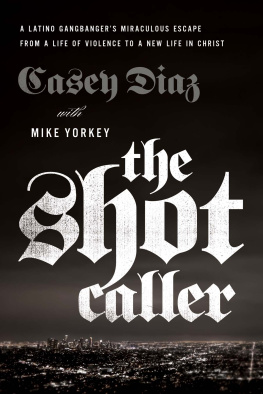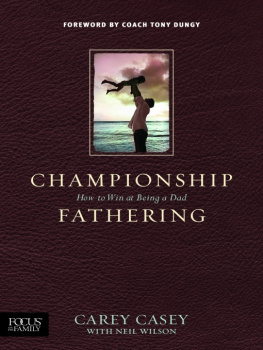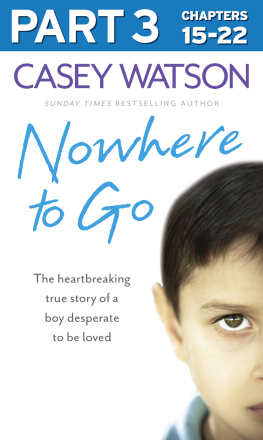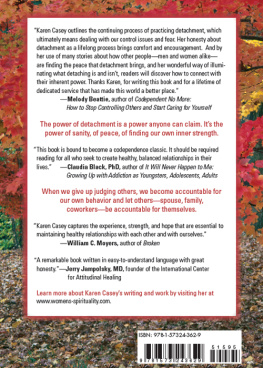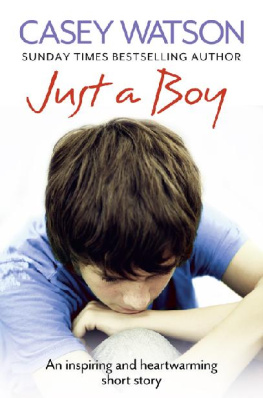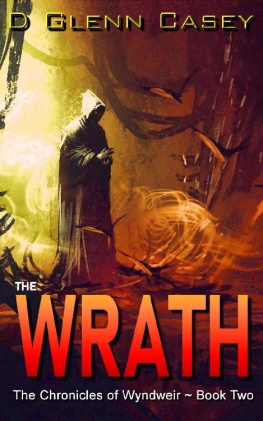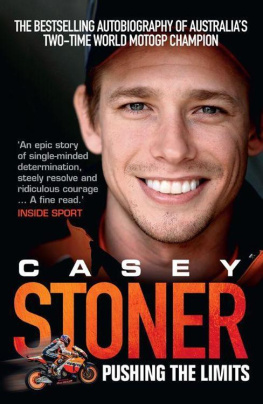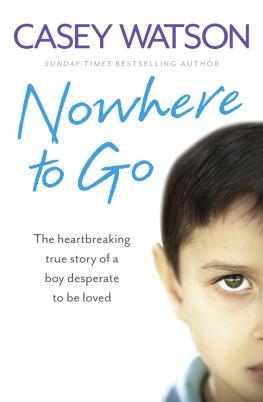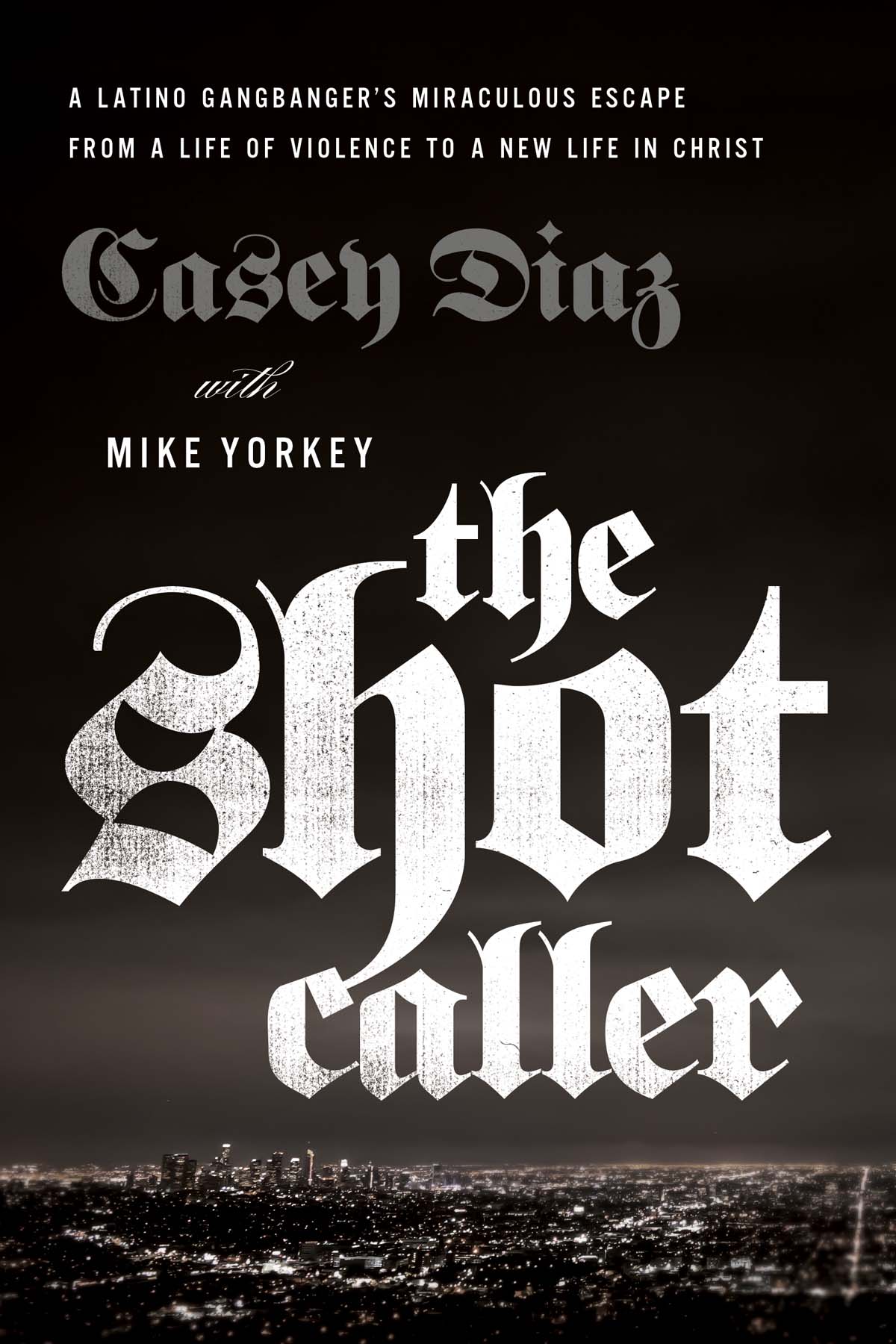CONTENTS
Guide
2019 Casey Diaz
All rights reserved. No portion of this book may be reproduced, stored in a retrieval system, or transmitted in any form or by any meanselectronic, mechanical, photocopy, recording, scanning, or otherexcept for brief quotations in critical reviews or articles, without the prior written permission of the publisher.
Published in Nashville, Tennessee, by Emanate Books, an imprint of Thomas Nelson. Emanate Books and Thomas Nelson are registered trademarks of HarperCollins Christian Publishing, Inc.
Thomas Nelson titles may be purchased in bulk for educational, business, fund-raising, or sales promotional use. For information, please e-mail SpecialMarkets@ThomasNelson.com.
Unless otherwise noted, Scripture quotations are taken from the New King James Version. 1982 by Thomas Nelson. Used by permission. All rights reserved.
Scripture quotations marked KJV are from the King James Version. Public domain.
Scripture quotations marked THE MESSAGE are from The Message. Copyright by Eugene H. Peterson 1993, 1994, 1995, 1996, 2000, 2001, 2002. Used by permission of NavPress. All rights reserved. Represented by Tyndale House Publishers, Inc.
Any Internet addresses, phone numbers, or company or product information printed in this book are offered as a resource and are not intended in any way to be or to imply an endorsement by Thomas Nelson, nor does Thomas Nelson vouch for the existence, content, or services of these sites, phone numbers, companies, or products beyond the life of this book.
Epub Edition February 2019 9780785224525
ISBN 978-0-7852-2452-5 (eBook)
ISBN 978-0-7852-2438-9 (TP)
Library of Congress Control Number: 2018962473
Printed in the United States of America
19 20 21 22 23 LSC 10 9 8 7 6 5 4 3 2 1
To Sana
Nicky Cruz
W hen I read about the life of Casey Diaz, I see so much of my own life.
Growing up as a young boy in Puerto Rico, my family was poor and my parents practiced witchcraft. My father sold out to the devil; my mother sold out to the devil. Me and my brothers and sisters were all subjected to this kind of life. We were cursed.
I became so angry, they sent me to New York City at fifteen to go live with my older brother. I had to fend for myself in a tough, big city.
Casey Diaz was brought to America in a similar way. His parents came from Central America, and he grew up poor on the streets of Los Angeles. He, too, had to quickly learn how to be tough in a big city. Casey had to quickly earn respect in the streets.
Like me, Casey wanted to become the greatest, most violent gang leader he could be. It was a way of gaining a reputation as someone to be feared. He became a leaders leader and he commanded the respect he thought he deserved.
I understand those feelings. When I was in my teens, I was like a wild animal on the streets of New York, so when David Wilkerson came to me in New York and told me about Jesus, me and my friends tried our best to humiliate him and scare him off. But he kept coming. This man had the nerve and the love to penetrate a war zone and tell me about a Jesus I had never heard of.
Even when I threatened to cut him into a thousand pieces, Wilkerson said to me, Nicky, even if you cut me into a thousand pieces, every one of those pieces will cry out, Jesus loves you! This man placed himself in the middle of my mess and brought me into the knowledge of Jesus Christ.
I started to wake up and realize Jesus loves Nicky Cruz. Me. I finally surrendered. I fell down crying like a baby, in front of my gang, in front of my friends. I didnt care anymore. I needed to be loved. I was free.
That little boy inside of methat boy from Puerto Rico who was so hurthe came alive for the first time. I surrendered all and exchanged my weapons for a Bible. I ate it up. I went to Bible school.
Casey has also experienced the miraculous love of Jesus. What you will read in these pages is a story about a tough young man who lost his way, and the story of a loving God who never forgot Casey, no matter where he was. The Holy Spirit broke through to both of us and gave us new life.
I dont deserve the life I now have. I dont deserve the family and ministry I have been given.
Like the apostle Paul said:
He considered me faithful and trustworthy, putting me into service [for this ministry], even though I was formerly a blasphemer [of our Lord] and a persecutor [of His church] and a shameful and outrageous and violent aggressor [toward believers]. Yet I was shown mercy because I acted out of ignorance in unbelief.
(1 Timothy 1:1213 AMP)
God has shown Casey mercy, and it is a beautiful thing. He was ignorant and so was I.
I know you will be inspired by Caseys story. I hope you, too, will surrender to the love of Jesus Christ.
What you are about to read is 100 percent true.
Some names have been changed to respect the privacy of individuals mentioned within this book.
Please be aware that I do not seek to glorify or excuse any of the poor choices I made in the past. Instead, my intent is to shine a light on my life as an example of Gods redeeming love.
M y cell door swung wide open.
A pot-bellied California correctional officer stood there, jangling a set of keys. One hour, Diaz, he announced.
Exercise time. For the next sixty minutes, I would be allowed to leave my cell at New Folsom State Prisonwhere two thousand of Californias worst-of-the-worst criminals were locked upto get some fresh air in the prison yard. I could lift dumbbells, do some chin-ups, or toss a well-worn basketball at the loosest rim west of the Mississippi. Or I could hang out and shoot the breeze with prisoners who were part of my cluster of cells that opened to an indoor communal area inside the prison.
I stood next to my gatethats what we called cell doors in prisonfrozen like a statue.
You coming or going? the prison guard asked.
On this, my first day with the main prison population, I knew I was supposed to gather the gang leaders together in the exercise yard and share a specific message with them.
Im going, I said to the prison guard.
So much had happened in the last twenty-four hours, starting with being transferred from the Security Housing Unit (SHU) inside New Folsom into the general prison population. After three years of solitary confinementwhere contact with other humans was severely restricted and generally limited to a mute guard escorting me to the showers or an exercise areaI was now allowed to interact with fellow prisoners in my new surroundings.
This was a big deal since the California prison system knew I was a gang leader from the barrios of downtown LA. The warden was acutely aware that I wasnt someone to trifle withinside or outside prison walls. I had stabbed people. I had stolen propertyfrom cars to cash to drugs. I had ordered others to take out rival gang members or punks who double-crossed us. I had street cred in spades.
Now I feared the tables had been turned after leaving the solitary confinement found in the SHU, which is pronounced shoe. Now that I was part of the general prison population, it was me looking over my shoulder, wary of who was approaching my space.
Dressed in prison-issued blue jeans and a white T-shirt that hung on my five-foot, eight-inch frame that weighed 175 pounds, I fell in with prisoners from our unit of cells as we walked toward the exit leading to an outdoor exercise yard that was as big as a football field. The late-morning sun was comfortable on a spring day in Folsom, approximately twenty miles northeast of Sacramento, the state capital.
Next page
